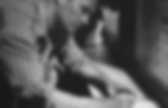

Microsoft Word - KEROUAC__JACK___ON_THE_ROAD.TXT - Kerouac, Jack - On the Road.pdf. Jack Kerouac: The Road Revisited. Jean Louis Lebris de Kerouac, better known as Jack Kerouac, was born in Lowell, Massachusetts, on March 12, 1922. His parents, Leo and Gabrielle, were French Canadian and devoutly Roman Catholic. Leo developed a printing business in Lowell, which provided a modestly comfortable life for the Kerouacs during the 1920s. The security of Jack’s early childhood existence was soon disrupted, however, by the death of his much loved older brother, Gerard, in 1926. During the following decade—the Depression of the 1930s—the financial fortunes of the family took a serious downturn.
Leo lost his business and was forced to take odd jobs to make ends meet. The family had to move into tenement housing. These reversals helped shape the character and values of young Jack. Jack was a gifted child, endowed with a keen intellect and a strong creative imagination. Kerouac’s football career at Columbia proved brief. For the next several years Kerouac’s life was unsettled and directionless. Books of the Times. Kerouac-millstein.pdf. On the Road. On the Road is a novel by American writer Jack Kerouac. On the Road is based on the travels of Kerouac and his friends across America. It is considered a defining work of the postwar Beat and Counterculture generations, with its protagonists living life against a backdrop of jazz, poetry and drug use.
The idea for On the Road formed during the late 1940s. It was to be Kerouac's second novel, and it underwent several drafts before he completed it in April 1951. It was first published by Viking Press in 1957. Origins[edit] Many aspects go into understanding the context of On the Road, and they must be viewed cohesively in order to appreciate why the book was as relevant and pertinent as it was. Kerouac biography[edit] Kerouac was born in a French-Canadian neighborhood of Lowell, Massachusetts, and learned English at age six. Many of the events depicted in the book are the experiences that shaped both its content and production.
Historical context[edit] Beat Generation summary[edit] J. Remembering Jack Kerouac. Search. Jerry Cimino: Katy Perry: 'Firework' Inspired by Jack Kerouac's 'On the Road' Katy Perry was not unknown to us here at The Beat Museum -- after all, for a while she was married to Russell Brand, who in 2007 participated in a cross-country road trip commemorating On the Road's 50th Anniversary. At the end of the journey, Russell did a live performance about Kerouac here at the Beat Museum that was recorded by the BBC and later broadcast all over the UK. This was before Forgetting Sarah Marshall hit it big. The BBC had contacted us weeks prior and asked if they could record an up and coming comedian who was about to make a splash with a U.S. debut. Turns out Russell was a big Kerouac fan, and had retraced Jack's journeys in On The Road across the US for the BBC, with a final stop here in San Francisco at The Beat Museum.
John Cassady and Russell Brand Russell was a pretty interesting guy. Now I don't know if Katy read On The Road before she met Russell or not, but it sounds like it made a pretty big impression on her, as well. I really liked this video. Jack Kerouac Birthday: 3 Ways Kerouac Changed American Literature. I didn't get Kerouac the first time I read him. His free-form writing made it hard for me to get into a rhythm while reading it. I could appreciate the jazz inspired stream of conscious with its improvisations and tangents, but I struggled to turn the pages and devour his work the way I could with someone like John Steinbeck.
What I didn't struggle to understand, however, was that what Kerouac was doing was different than anything I had ever read before. He changed the form, and made it okay to do things that would have at one point been deemed blasphemous. Jack Kerouac would have turned 91 on March 12. 1. If Kerouac had his way, On The Road would have had no punctuation and been one long, rambling story that read along a scroll (as pictured above). 2. It is rumored that Allen Ginsberg stared at a list of 30 Writing Tips from Kerouac while writing Howl. Even his list of tips is sometimes hard to decipher, but the lessons are applicable to life as well. 3. Liam Boylan-Pett. On the Road Study Guide : The Cultural and Social Influence of Kerouac. No author of the Beat Generation was as influential and widely read as Jack Kerouac. It was On the Road, published in 1957, that catapulted him to fame, largely on the strength of a single review in the New York Times in September of that year.
By 1957, the American public had begun to gain awareness of the beatnik culture, mainly through Allen Ginsburg's obscenity trial for his book Howl, as well as other media events. With the publication of On the Road, Kerouac became the face and voice of the Beat Generation. His interviews appeared in mass-market publications like Life and Playboy, and he appeared on television. Though On the Road is a novel about a group of young people who live off the map of American culture, the beatnik culture took on a life of its own in the American consciousness after 1957. Despite its popularity, Kerouac and the Beats were often blamed for everything that seemed wrong in America.